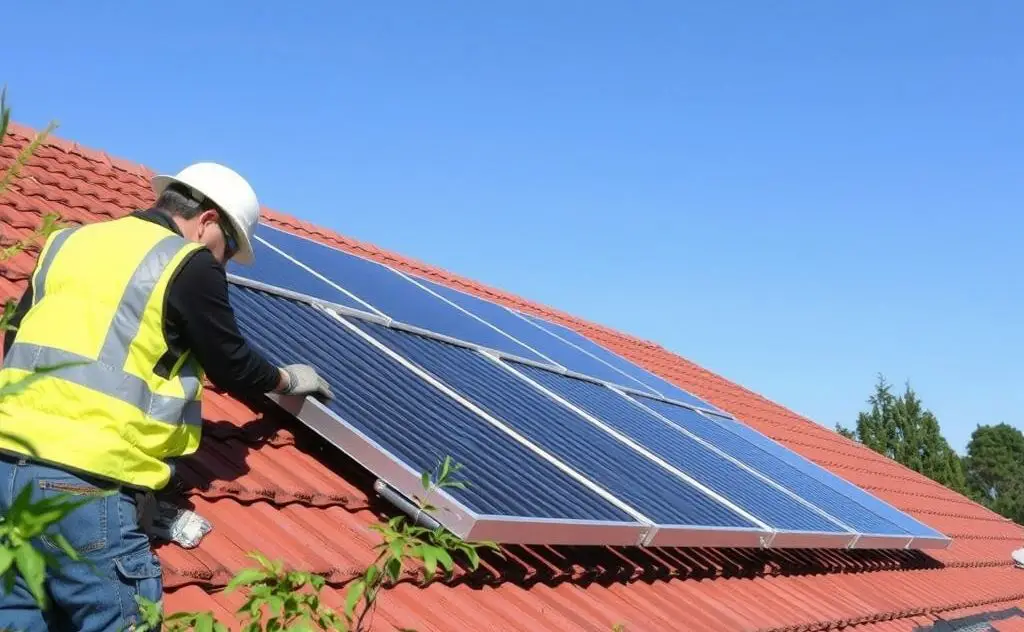To plan regular maintenance of a solar heating system, schedule annual inspections, clean panels, check fluid levels, and monitor system performance consistently.
Proper maintenance keeps your solar heating system running efficiently for years. Regular checks prevent costly repairs and maximize energy savings. Follow this comprehensive guide to maintain your system like a pro.

Essential Solar Heating System Maintenance Tasks
Solar heating systems require specific care to maintain peak performance. These tasks should be part of your regular maintenance routine.
Visual Inspections
Conduct thorough visual checks every 3-6 months:
- Examine collector glazing for cracks or yellowing
- Check for shading from new vegetation or structures
- Inspect roof penetrations for leaks
- Look for corrosion on metal components
For complex roof inspections, consider professional help like the licensed technicians we recommend for water heater services.
Component Testing
Test these critical components seasonally:
| Component | Test Method | Frequency |
|---|---|---|
| Pressure relief valve | Actuate lever to check operation | Spring and Fall |
| Pumps/blowers | Listen for operation during sunlight hours | Monthly |
| Temperature sensors | Verify proper attachment and wiring | Annually |

Fluid System Maintenance
Hydronic systems require special attention to fluid quality and heat exchangers.
Antifreeze Maintenance
Glycol-based systems need periodic fluid replacement:
- Test pH and freeze point annually
- Replace fluid every 3-5 years
- Have a professional handle fluid disposal
The U.S. Department of Energy recommends checking fluid condition at least every 3 years.
Descaling Procedures
Mineral buildup reduces efficiency. Descaling methods include:
- Vinegar flushes for mild scaling
- Commercial descaling solutions for heavy deposits
- Water softeners for prevention
Electrical System Checks
Proper electrical maintenance ensures safe operation and prevents component failure.
Controller Maintenance
Delta-T controllers need regular verification:
- Check pump operation matches sunlight conditions
- Test sensor resistance against manufacturer specs
- Ensure proper grounding of all components
For complex electrical issues, consult our guide to thermostat controls which covers similar principles.
Wiring Inspection
Examine all electrical connections annually:
- Check for loose or corroded terminals
- Verify conduit integrity
- Test ground fault protection devices
Seasonal Maintenance Schedule
Tailor your maintenance to seasonal needs for optimal results.
Spring Preparation
- Clean collector surfaces
- Check for winter damage
- Verify antifreeze concentration
Fall Winterization
- Drain water systems if freezing possible
- Check insulation on pipes
- Test freeze protection systems
According to Coldwell Solar, seasonal maintenance can prevent up to 80% of common system failures.
Professional vs. DIY Maintenance
Understand which tasks you can handle and when to call professionals.
DIY-Friendly Tasks
- Visual inspections
- Basic cleaning
- Monitoring system performance
Professional Services Needed
- Roof work
- Electrical repairs
- Fluid replacement
- Major component replacement
Always get written estimates for professional work and verify technician certifications.
